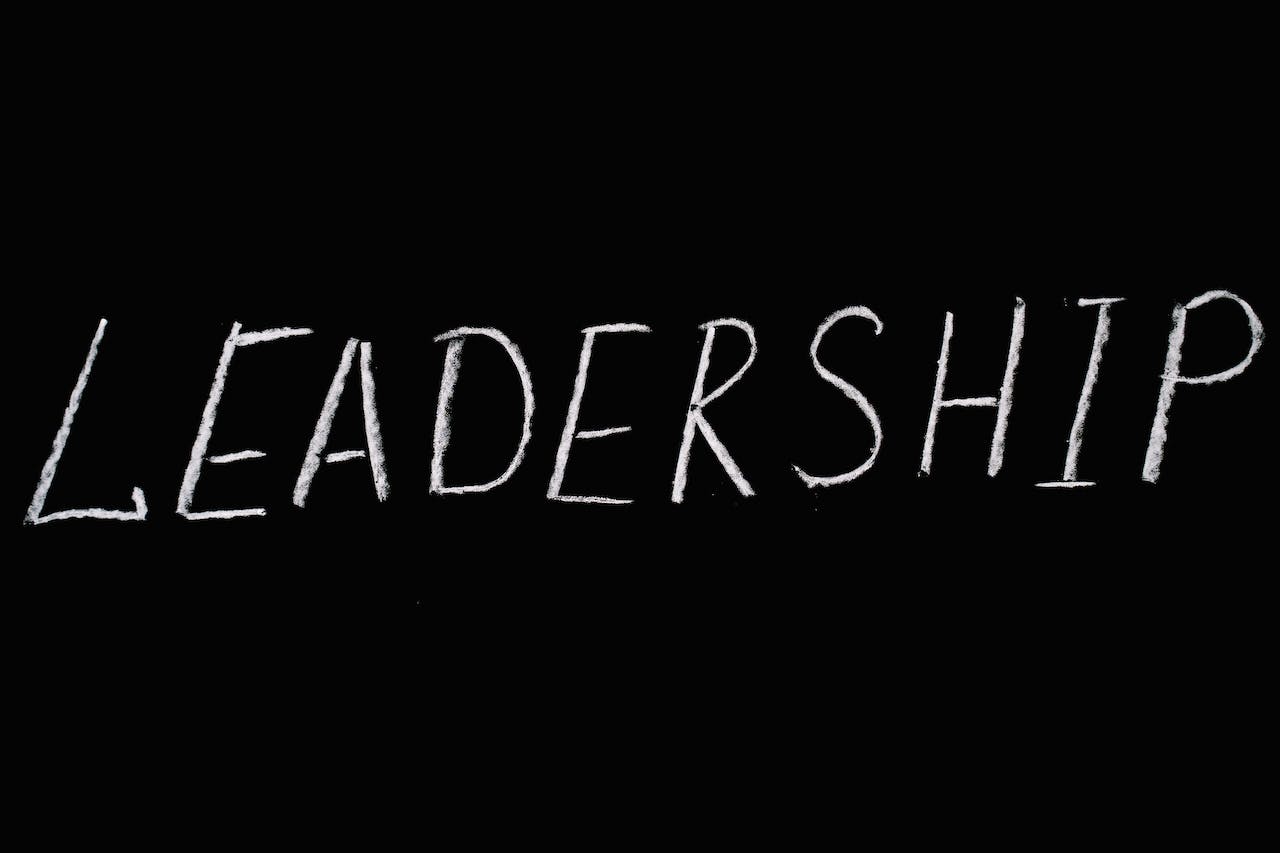
Recall the finest supervisor you have ever had. What kind of person was that? They most likely have traits of a leader, such as confidence, active listening, and the capacity to inspire others. Because of this, you produced your finest work and enjoyed your work throughout your tenure as your manager.
You may desire to acquire some of these leadership skills yourself at some time in your career. You may be prepared to reach your most significant potential as a team leader or manager. Alternatively, start honing your leadership abilities to secure your next promotion.
For whatever reason, mastering the attributes of a successful leader may propel your career forward. It may also assist you in identifying future leaders in your immediate reports and, when required, in criticizing ineffective leaders. Let's define leadership and examine the key traits of effective leadership. let's start with what is Leadership.
Leadership is much more than just having power and being in control. A practical leader can be without a formal title. This is because having a title only sometimes implies being a competent leader. Furthermore, being a leader does not need holding a title.
While some individuals believe that leadership entails dictating to subordinates, in reality, leadership is about empowering others to succeed both personally and as a team. It also involves having the ability to make choices that are more in line with the organization's objectives or the broader picture than with your interests. Let's have a look at some qualities of an effective leader!
Accountability
Effective leadership is on accepting accountability for both good and bad results. Leaders need to accept accountability for both their own and their team's tasks. This might include expressing regret for errors made as well as creating new procedures and systems to avoid mistakes from happening again.
Respect
One of the most crucial things a leader can do daily is to treat people with respect. It promotes trust, lessens stress and conflict, and increases your performance. It takes more than simply not being disrespectful to create a culture of respect.
Although there are various methods to demonstrate respect, it usually begins with demonstrating that you appreciate the opinions of others and trying to foster a sense of community at work, both of which are essential elements of promoting fairness, diversity, and inclusion.
Gratitude
Among the most potent and significant traits of a leader is compassion. It takes more than just listening and trying to understand others or even just demonstrating empathy, as compassion calls on leaders to put what they learn into practice.
Our study indicates that when individuals voice their concerns or raise an issue, they will only feel fully heard if their leader acts on the information. This is the foundation of compassionate leadership, which promotes cooperation trust, and lowers employee turnover in businesses.
Courage
Good leaders should always have the guts to act in the team's and business's best interests. Leaders may sometimes have to make tough or unpopular choices. In these situations, bravery may enable them to confidently embrace the challenges of their position and make the right choices.
Leaders could also need bravery to take on new problems. By taking on greater responsibility or challenging oneself to learn new abilities, you may demonstrate bravery.
Adaptability
When necessary, a flexible leader can sustain and make adjustments to the team, project, or meeting.
As long as it advances the group and business, they are receptive to fresh perspectives and modifications. Being adaptable will enable you to modify your plan of action to meet objectives if your work environment, project, or stakeholders' expectations change.
Focus On Relationship Building
Early management academics believed that the job itself was the most significant component of the workplace. They created systems and carried out research aimed at boosting worker productivity, but they needed to take more action to address the human aspects of their workforce.
Modern leadership theories address the workplace from a broader perspective and take into account the human aspects of workers, such as their need to build connections with other team members.
Employees cannot bring to their companies only the portion of themselves that does work since they are human. Leaders must be exceptional connection builders in every department of the company because they bring their whole selves to the table.
Eager To Learn
When leaders keep up with the latest developments in the fields they are leading, they become both inspiring and influential. This not only helps leaders accomplish their goals and hone their abilities, but it also encourages the team to keep learning.
Engaging in professional development opportunities or furthering your education might inspire your colleagues to make learning investments as well.
Resilience
It's more complex to be in command. An overwhelming amount of stress was experienced by 37%of managers during their most recent workday. However, as a leader, you must not let the constant difficulties depress you; flexibility and grit are essential.
While it's OK to experience frustration sometimes, influential leaders constantly improve their mental toughness and persevere in the face of adversity. People often like solving original problems to get beyond challenges.
Integrity
Leaders must behave with dependability, integrity, honesty, and sincerity. Workers must believe that their boss will act morally. That they will act and talk the same. Or that they would accept responsibility for their mistakes rather than place the blame on the team.
Maintaining the company's principles and treating people equally are examples of integrity. This not only fosters trust among teammates but also motivates them to behave honorably.
Optimism
Upbeat leaders demonstrate that they think their organization is striving for a brighter future. They appreciate what each team member has done to help them reach that objective.
Planning and keeping a good attitude throughout changes and transitions are common traits of influential leaders. Maintaining a good attitude under high pressure or unfavorable circumstances might aid your team in properly handling challenges.
Patience
Good leaders understand that errors, misunderstandings, and setbacks occur in the workplace and that perseverance may help their team overcome these setbacks.
Being patient means acknowledging that errors may occur, embracing them when they do, and concentrating your energies on continuing to be productive. Since it may take some time for people under your supervision to pick up new abilities, you could also exercise patience when assisting staff members in assuming new tasks and duties.
Self-Knowledge
Influential leaders articulate the abilities and know-how necessary for a particular position within a company or field. They are self-consciously aware of their strengths and weaknesses, and they speak out for themselves.
Proficient leaders prioritize introspection to recognize their advantages and disadvantages. They may endeavor to enhance their skills and use their talents to assist their team success based on their self-awareness.
Have A Bias For Action
Some leaders speak a fine game, but they need to follow through on their words. Effective leaders are individuals who advocate for change and take initiative after discussing necessary changes.
When a choice has to be taken, or there is ambiguity, leaders who are biased toward action don't hesitate to take action. They act and make judgments with bravery, taking responsibility for their choices. These leaders are the ones making the first move; someone has to.
Communication Abilities
The key to effective leadership is communication. None of the other traits or qualities of leadership on this list matter if you are not a skilled communicator. Your team and your company will suffer as a result of your inability to connect with those under your leadership.
In particular, clarity is crucial. The Predictive Index People Management Studyreports that 58% of managers who are judged "poor" by their staff fail to set clear expectations. For the whole team, this may be very irritating and demoralizing. Thus, one of the most crucial leadership skills you can acquire is good communication.
Active Listening
Beyond just being open to hearing what someone has to say, active listening is a different kind of listening. A leader who is also an active listener can comprehend what someone is saying, think back on their points, and recall that knowledge later, according to the Center for
Creative Leadership
You have to focus entirely on the person speaking to you to be an active listener. Throughout the chat, you should pay close attention and take mental notes of the points they are making.
By doing this, you will be able to remember what they said in the future and be able to depend on their viewpoint when you make choices that will determine the direction of your team or company.
Making Decisions
Making choices is an essential part of being a leader, and the most influential leaders can act quickly to reach just conclusions. In actuality, your team depends on you when you hold a leadership role. They turn to you to provide them with advice.
They thus anticipate that you will be able to decide in a way that will help the team achieve its objectives in the quickest length of time. Leaders who possess other refined traits of leadership, such as bravery, honesty, and trust, are often more self-assured and make better decisions for their businesses.
Recognize Your Leadership Style
As you start to work on honing your leadership skills, it's critical to know which of the many different leadership philosophies best fits your style as a leader and your personality. The most popular types of leadership are as follows;
Transformational Leadership
As a transformative leader, you probably want to motivate your group to reach their full potential. Transformational leaders place a strong emphasis on advancement and transformation.
Delegative Leadership
You are a delegation leader if you have a more laissez-faire attitude to leadership. Delegative leaders seek to delegate authority and provide their team with the room they need to achieve their objectives.
Authoritative Leadership
Although the authoritative leadership style is often misinterpreted as authoritarian or dictatorial, it is not as scary as it sounds. An authoritative leader inspires their team to follow their example while acting as a mentor or leader.
Transactional Leadership
This kind of leadership, often known as management leadership, places a strong emphasis on rewarding good conduct and disciplining lousy behavior. It is a systematic and structured style of leadership that is often used in business environments.
Participative Leadership
All team members are encouraged to take part in management via participatory leadership. You could include your team members in decision-making if you're a participatory leader. Consider several points of view before making a final choice.
Servant Leadership
One of the main goals of servant leadership is relationship development. You are likely to identify as a servant leader if you have a propensity to prioritize the needs of the group above your preferences or goals.
You may identify more with a combination of various leadership philosophies than with a single style. You will start to identify your leadership style as you blend aspects of several leadership philosophies. From there, you may develop the particular leadership traits necessary to develop into a powerful and successful leader.
How To Develop The Character Traits Of A Leader?
Some of these leadership traits come quickly to you, but you may also concentrate on developing important ones. To cultivate the qualities of a successful leader, adhere to these five stages.
Prioritize Learning And Training
Try to study as much as you can to enhance your abilities and develop essential traits. List the things you need to work on and the approaches that will help you get there.
Through planned lectures and exercises, an online course or training session might help you enhance your leadership abilities. For instance, sign up for your company's next team-building conference if you need to enhance the way you approach collaboration.
Adopt A Leadership Style
Numerous well-known leaders modify the most popular leadership philosophies to suit their personal needs. Learn about some of the most successful approaches, then choose the one that best suits your objectives, industry, and personality.
For instance, think about adopting a coaching approach that focuses on assisting each member of your team in becoming the most excellent versions of themselves, or attempt a visionary approach that allows you to concentrate on advancing development via innovation.
Ask For More Responsibilities
Taking on tasks that allow you to lead is one of the finest methods to hone your leadership abilities and cultivate essential qualities. Think about approaching your manager to take on an oversight role on your next project or to allow you to deliver a significant slide at a meeting.
To make the most of your new responsibilities, concentrate on developing the leadership qualities you need to strengthen. Speaking up for your group at a meeting may help you improve your confidence, and managing a project can foster teamwork.
Boost Your Ability To Communicate
The most successful leaders can listen intently, write effectively, and talk clearly. Focus on conveying your message as clearly as possible as you learn to express your purpose and thoughts both orally and in writing.
It's also essential that you know how to handle criticism and recommendations so that you can solve problems objectively and with an emphasis on progress. Considering how vital these abilities are to a leader's success, you should enroll in a professional communication course to improve your communication skills.
Take Advice From An Advisor
It might be simpler to develop leadership qualities when you collaborate closely with a superior you respect. Make use of any mentoring programs your employer may have, and establish a rapport with a coworker who has more expertise in your area.
Additionally, look for a mentor on your own by going to professional associations or networking events. To discuss professional growth and tactics for leadership in your sector, try setting up monthly sessions with your mentor.
Frequently Asked Questions
How Does A Good Leader Foster A Positive Organizational Culture?
By promoting open communication, valuing diversity, and encouraging a collaborative and respectful work environment.
Why Is Integrity A Non-Negotiable Trait For Leaders?
Integrity builds trust, credibility, and ethical standards, forming the foundation for effective leadership.
How Does A Good Leader Balance Assertiveness And Approachability?
Striking the right balance ensures a leader is assertive when needed, yet approachable, promoting team engagement and cooperation.
Final Thoughts
It's not a mystery that some individuals are born with leadership skills while others never will. Instead, being a leader requires practical abilities that everyone can acquire, regardless of status in the company.
Although we've covered the most crucial traits that need to be included in your leadership development, each leader has their style. With time, you'll develop your style by fusing these traits of a leader with creative ways that encourage your team.
That being said, exceptional leaders have an essential quality in common: they can take a vision and transform it into tangible outcomes. They don't do this alone; at their core, leadership abilities are people skills, sometimes known as soft talents. Outstanding leaders are also capable of motivating those under their direction.





